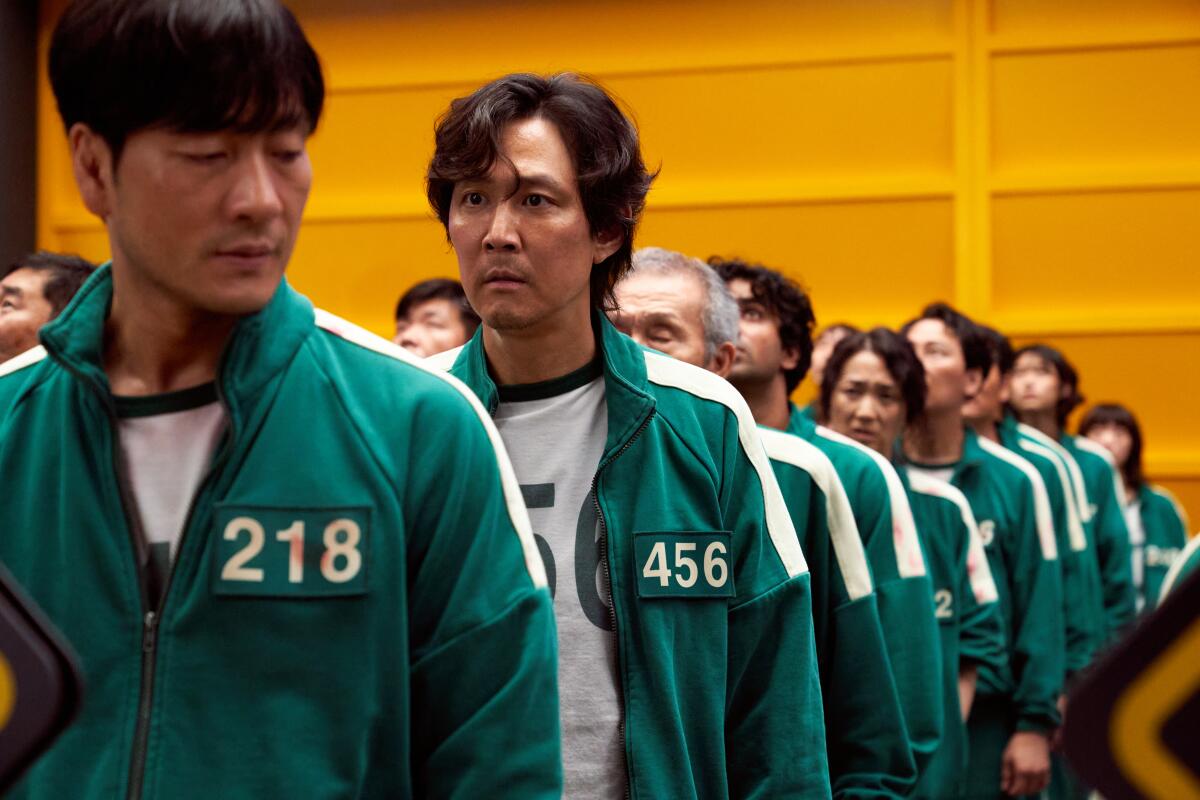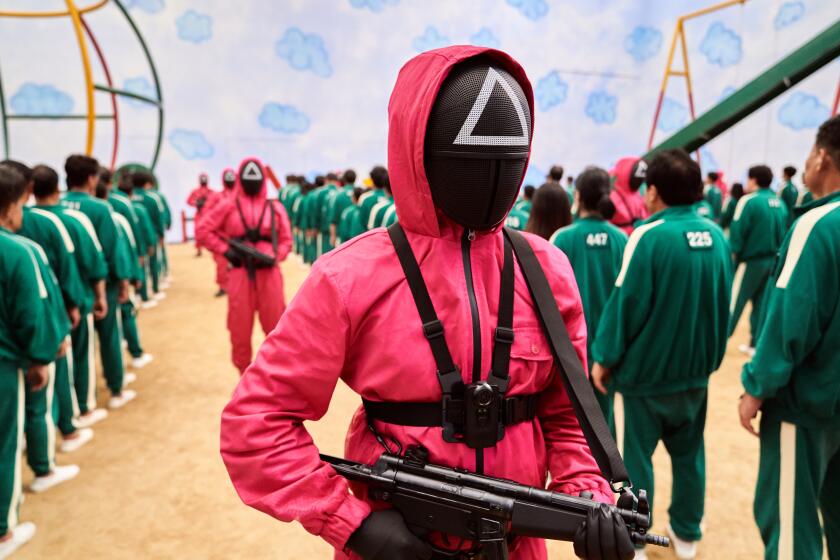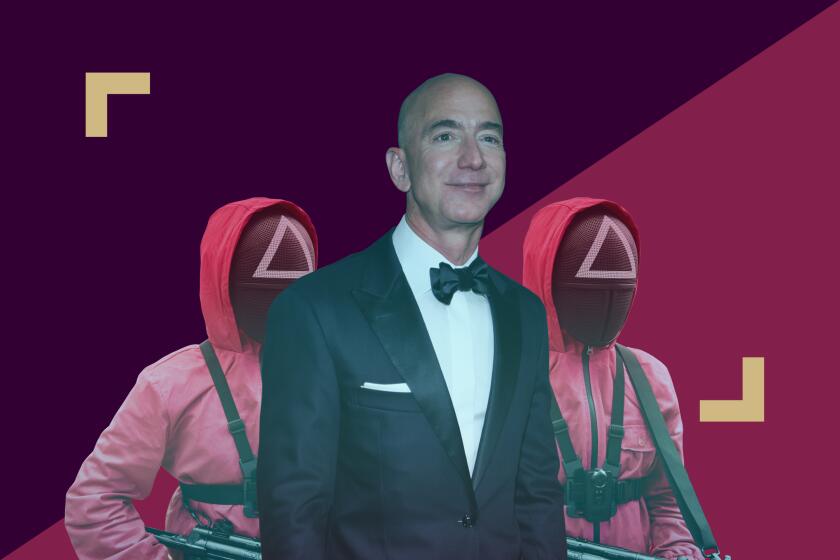Obsessed with ‘Squid Game’? This is why its creator nearly didn’t finish writing it

- Share via
The Netflix hit “Squid Game” has been described by some as social commentary on capitalism — and how better to comment on capitalism than with an anecdote about the lengths a person will go to for some cash?
Not the approximately $38 million that is the “Squid Game” prize. Nor is it whatever amount Netflix paid for a show that’s apparently on track to displace “Bridgerton” and “Lupin” as the streamer’s most successful project so far.
Nope, it’s about the relatively small amount of money that temporarily derailed “Squid Game” mastermind Hwang Dong-hyuk‘s efforts entirely.
‘Squid Game’ has conquered the world, according to the streamer. Our TV critic explains what it is — and why you might like to catch up.
The show’s 50-year-old creator and director came up with the unsettling concept more than a decade ago, while living with his mother and grandmother, the Wall Street Journal reported Monday. While Hwang’s reasons for living at home aren’t explained in detail, it’s clear that he was in need of money at some point.
So much in need that it was more important to get $675 than it was to keep working on the script that would one day generate the big bucks.
In Screen Gab No. 7, we tackle Korea’s surprise streaming hit, diagram the battle of the Britney docs and discuss “Diana: The Musical.”
Yep, $675 is what Hwang got for selling his laptop, which meant he couldn’t keep writing on it, though we’re guessing at some point he laid his hands on another machine and got the job done.
It seems that “Squid Game” — with its brutal killings as contestants compete to the death for money — wasn’t the most attractive bait 10 or so years ago. But the COVID-19 pandemic shifted some thinking. At least Netflix’s thinking.
“The world has changed,” the director told WSJ, with certain economic realities laid bare by the pandemic making the story “very realistic for people [now] compared to a decade ago.”
The Amazon founder raised eyebrows when he tweeted fulsome praise for Reed Hastings and Ted Sarandos and the company’s dystopian South Korean drama.
More to Read
The complete guide to home viewing
Get Screen Gab for everything about the TV shows and streaming movies everyone’s talking about.
You may occasionally receive promotional content from the Los Angeles Times.










